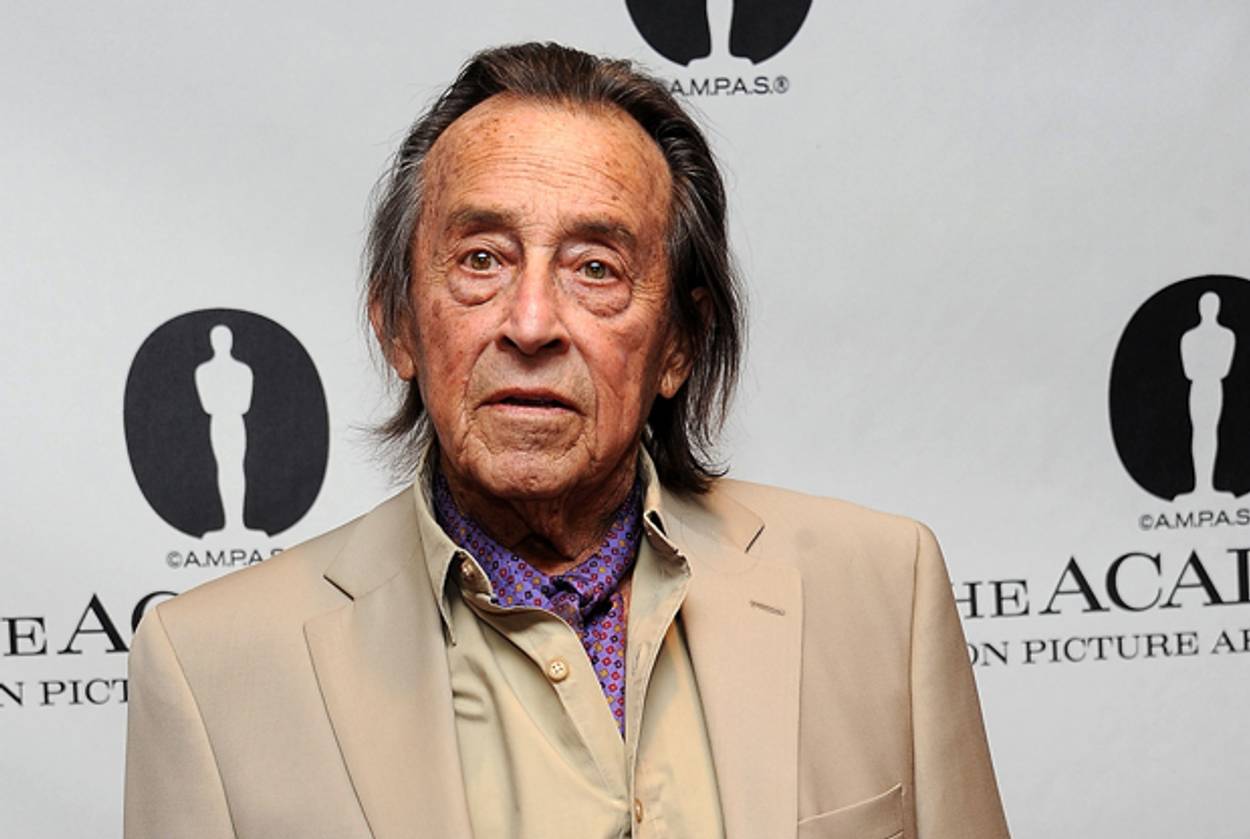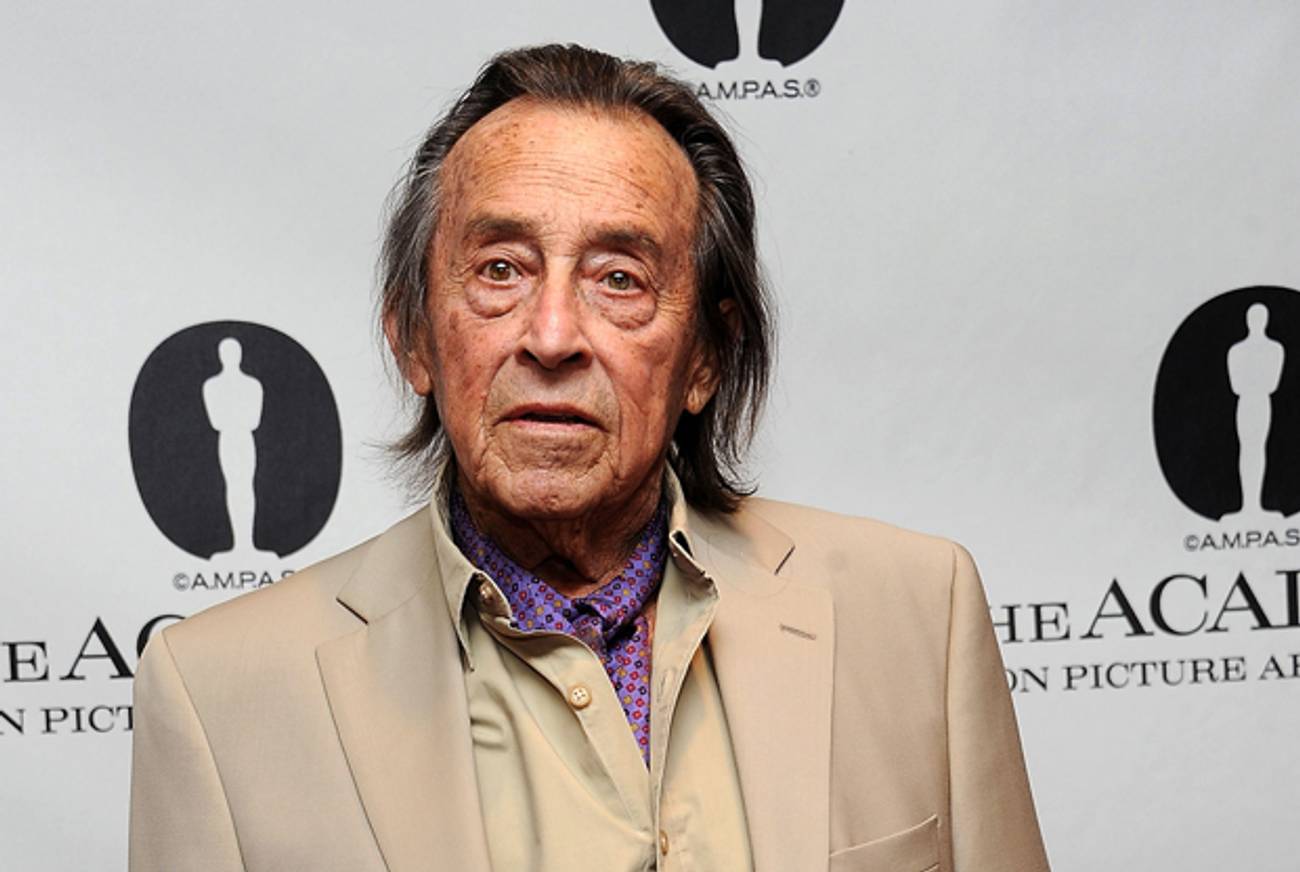Paul Mazursky: ‘I Was Born Eating Kreplach and Matzoh Brei and Lox’
An excerpt from Stars of David: Prominent Jews Talk About Being Jewish




In 2005, Abigail Pogrebin published Stars of David: Prominent Jews Talk About Being Jewish. The following is an excerpt from the chapter about Paul Mazursky, the director and actor who died Monday at 84 in Los Angeles.
“Halvah is probably the closest thing I have to being religious,” says director/actor Paul Mazursky, sitting in an office so spartan it looks temporary. “I’ve been on a diet for 20 years, but if you give me a piece of halvah, it’s over; I’m going to eat it.”
Mazursky, 75, writer and director of An Unmarried Woman, Down and Out in Beverly Hills, and Tempest, among other films, is acting these days in Larry David’s Curb Your Enthusiasm on HBO. “I don’t have a good psychological explanation for why I’m Jewish,” he says from under his baseball cap. “I was born eating kreplach and matzoh brei and lox. The Jews don’t make good main dishes, by the way. They’re only good at making what you call ‘fore spice’—the stuff before the meal. And some of the desserts. Rugelach is a treasure.”
The Brooklyn-raised Mazursky calls his parents “Holiday Jews” and says his grandmother went to synagogue, but his grandfather stayed home. “I found him eating one day on Yom Kippur while Grandma was in shul, fasting. I was five or six years old. He was eating pickled herring. I said, ‘Grandpa, why is Grandma fasting while you’re eating?’ He said, ‘Because I’m hungry.’ And that told me everything that I had to know about religion.”
Mazursky says his wife isn’t Jewish, but she wears a Jewish star “because she likes Jews, she likes Israel.” As for himself, he’s “anti-religious”: “For me, religion is one of the things that’s ruined mankind and continues to do so every day. Something that used to have meaning and importance has emerged as ‘I’m different than you,’ ‘I’m better than you,’ and it’s endless. We’re now in a world situation that I find in many ways the worst I’ve ever remembered it.”
A messenger enters the office to deliver a package and apologizes for the intrusion. “That’s okay,” Mazursky tells the messenger, who is black. “We’re talking about Jews. Do you know any Jews?” A nod. “What are you?”
Mazursky asks. “Catholic,” the messenger replies. “That’s nice,” Mazursky says.
Mazursky’s two grown daughters, Jill and Meg, did not marry Jews, but Jill is sending her five-year-old daughter, Molly, to a Jewish school in Los Angeles. “Here’s a good story,” Mazursky says. “Molly comes home from school one day and I said, ‘Did you learn anything special today?’ She said, ‘I learned a’”—he’s trying to remember a Hebrew word—“it wasn’t a ‘mitzvah,’ but some word for ‘song.’ I said, ‘How does it go?’ She says”—he suddenly bellows approximated Hebrew—“Chai ditz shoi la shoi balla bu!” He smiles. “I started to cry. I literally started to cry. All the Jewish stuff came out of me. I felt, ‘Oh, this is a Jewish kid!’ That was fabulous beyond belief. And Steve, the husband, turned purple.”
I ask him which of his movies he would consider Jewish. “Well, of course Enemies, A Love Story: It’s about a tortured Jewish guy with three wives, who escaped the Holocaust by hiding in an attic. There are about three meals in that movie that are particularly Jewish. See it again and pay attention to the food.”
What about Bob & Carol & Ted & Alice? “Nah. That’s why it was a hit. If there are Jewish characters, you have very little chance of being a hit. However, The Producers is a big hit, so I’m making a huge generalization. But generally speaking in Hollywood, they’ve always been nervous about big-time Jewish stuff. The ones who are most uncomfortable are Jewish executives. Not the goyim. My movies were usually backed by goyim.”
Would he be bothered if someone described him as a Jewish director? “I don’t think I would be bothered, but it wouldn’t be a fair description. I’m an American director, I’m an American actor, and I happen to be culturally Jewish and very proud of it and I don’t hide it. I’ve never hidden it in my work.”
Mazursky does feel wistful that the “old-fashioned stuff” he cherishes from his childhood has been lost from Jewish life. “It’s not the same now,” he says. “You wouldn’t be surprised to see a rabbi in New Balance sneakers, a good jogging outfit, and a hip yarmulke singing Yiddish rap. But we still have the great clichés: Jews still want for their children a great education.
“You know the great joke about the first female president? A Jewish girl becomes president and she says to her mother, ‘You’ve got to come to the inauguration, Mom.’ The mother says, ‘All right, I’ll go, I’ll go. What am I going to wear? It’s so cold. Why did you have to become president? What kind of job is that? You’ll have nothing but tsuris.’ But she goes to the inauguration, and as her daughter is being sworn in by the chief justice, the mother turns to the senator next to her and says, ‘You see that girl up there? Her brother’s a doctor.’”
Excerpted from Stars of David: Prominent Jews Talk About Being Jewish by Abigail Pogrebin. Copyright 2005 by Abigail Pogrebin. Used by permission of Broadway Books, a division of Random House, Inc.
Related: ‘Proud to Be Jewish’
There She Is
Famous People’s Reflections on Being Jewish, Now Rendered on Stage, in Song
Abigail Pogrebin is the author of Stars of David and My Jewish Year. She moderates the interview series “What Everyone’s Talking About” at the JCC in Manhattan.